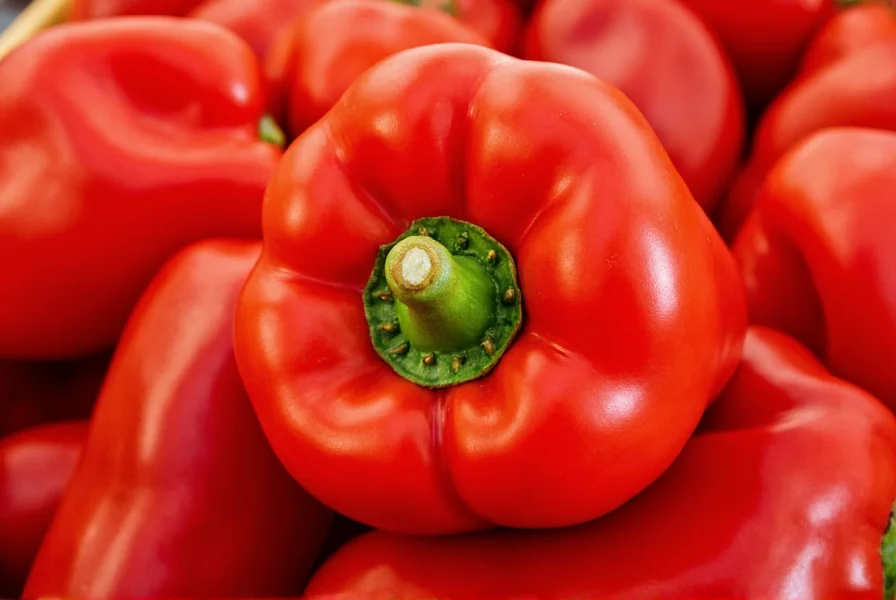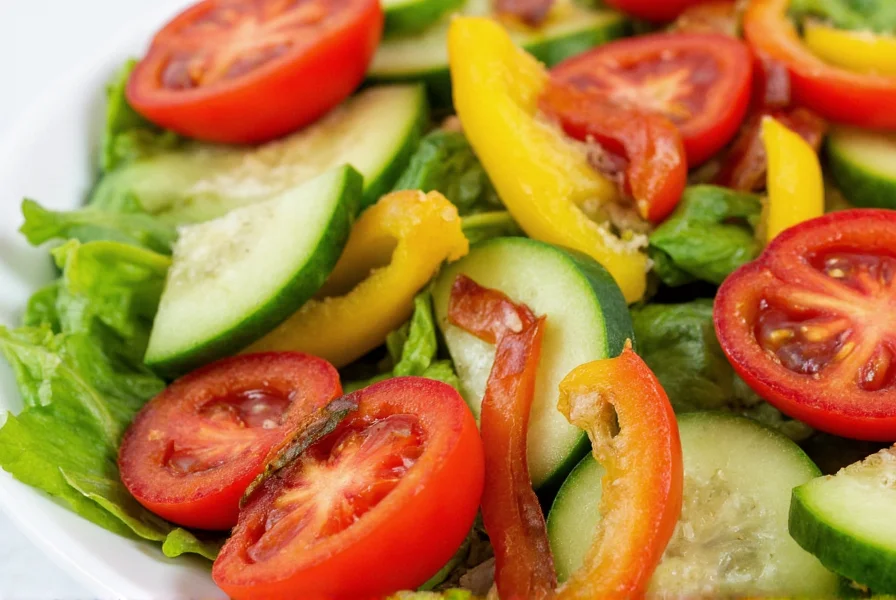When tracking your daily nutrition, understanding the precise calories in a medium red bell pepper can help you make informed dietary choices. Red peppers, scientifically known as Capsicum annuum, offer remarkable nutritional value with minimal caloric impact. Whether you're following a specific diet plan or simply aiming to incorporate more nutrient-dense foods into your meals, red peppers provide exceptional benefits without compromising your calorie goals.
Nutritional Profile of Red Bell Peppers
Red bell peppers represent the mature version of green bell peppers, having ripened longer on the plant. This extended ripening period significantly enhances their nutritional content compared to their green counterparts. The complete nutritional breakdown for a medium red bell pepper (119g) includes:
| Nutrient | Amount | % Daily Value |
|---|---|---|
| Calories | 37 | 2% |
| Total Fat | 0.3g | 0% |
| Carbohydrates | 9g | 3% |
| Dietary Fiber | 2.5g | 9% |
| Sugar | 5.5g | - |
| Protein | 1.2g | 2% |
| Vitamin C | 152mg | 169% |
| Vitamin A | 3131IU | 63% |
| Vitamin B6 | 0.3mg | 15% |
| Vitamin K | 4.9mcg | 6% |
| Potassium | 314mg | 9% |
The impressive red bell pepper nutrition facts reveal why this vegetable deserves a regular spot in your diet. With nearly 170% of your daily vitamin C requirement in just one medium pepper, red peppers significantly outperform oranges in this essential nutrient. The high vitamin A content, primarily from beta-carotene, supports eye health and immune function.

Red Pepper Calories Compared to Other Vegetables
Understanding red pepper calories vs green pepper and other common vegetables helps contextualize their place in a balanced diet. While nutritional profiles vary slightly, here's how red peppers compare:
- Red bell pepper (medium): 37 calories
- Green bell pepper (medium): 24 calories
- Cucumber (medium): 24 calories
- Carrot (medium): 25 calories
- Broccoli (1 cup chopped): 55 calories
- Spinach (1 cup raw): 7 calories
Though red peppers contain slightly more calories than green peppers, this difference comes primarily from their higher natural sugar content as they ripen. The trade-off is significantly enhanced nutritional value, particularly in antioxidants and vitamins.
Health Benefits of Red Bell Peppers
The question are red peppers good for weight loss has a definitive answer: yes. Their low calorie density combined with high water and fiber content creates a satisfying food that helps control hunger without excess calories. Beyond weight management, red peppers offer numerous health advantages:
Powerful Antioxidant Properties
Red peppers contain multiple antioxidants including carotenoids, capsanthin, and quercetin. These compounds combat oxidative stress and inflammation throughout the body, potentially reducing the risk of chronic diseases.
Immune System Support
With more than 150mg of vitamin C per medium pepper, red bell peppers provide exceptional immune support. Vitamin C also enhances iron absorption from plant-based foods and supports collagen production for healthy skin.
Digestive Health
The 2.5 grams of dietary fiber in a single red pepper promotes healthy digestion and regular bowel movements. Adequate fiber intake is associated with reduced risk of heart disease, diabetes, and certain cancers.
Preparing and Cooking Red Peppers
Many people wonder about how many calories in roasted red peppers compared to raw. Cooking methods affect nutritional content differently:
- Raw red peppers: 31 calories per 100g - preserves maximum vitamin C
- Roasted red peppers: Approximately 33 calories per 100g - slight increase due to water loss
- Grilled red peppers: Similar to roasted, about 32-34 calories per 100g
- Stuffed red peppers: Varies significantly based on filling ingredients
While cooking reduces some heat-sensitive nutrients like vitamin C, it increases the bioavailability of certain antioxidants like carotenoids. For maximum nutritional benefit, include both raw and cooked red peppers in your diet.

Incorporating Red Peppers into Your Diet
Red bell peppers' sweet flavor and crisp texture make them versatile in numerous dishes. Here are practical ways to enjoy their nutritional benefits:
- Add raw slices to sandwiches and wraps for crunch and color
- Include in stir-fries during the last few minutes of cooking
- Roast and blend into soups or sauces
- Stuff with lean proteins and whole grains for a complete meal
- Chop into omelets or frittatas
- Create vibrant salads with other colorful vegetables
For those tracking their calories in raw red pepper portions, remember that one cup of chopped red pepper contains approximately 30 calories, making it an excellent low-calorie addition to virtually any meal.
Storage Tips for Maximum Freshness
To preserve both flavor and nutritional value, store whole red peppers in the crisper drawer of your refrigerator. Properly stored, they'll maintain freshness for 1-2 weeks. Once cut, store in an airtight container and use within 3-4 days. Avoid washing peppers until ready to use, as excess moisture accelerates spoilage.
Frequently Asked Questions
How many calories are in a whole red bell pepper?
A medium whole red bell pepper (approximately 119 grams) contains about 37 calories. The exact count varies slightly based on size, with smaller peppers containing around 25-30 calories and larger ones reaching up to 45 calories.
Are red peppers good for weight loss?
Yes, red peppers are excellent for weight loss due to their low calorie density (only 31 calories per 100g), high water content (92%), and significant fiber content (2.5g per medium pepper). They provide volume and satisfaction without adding substantial calories to your diet.
Do roasted red peppers have more calories than raw?
Roasted red peppers have slightly more calories by weight (about 33 calories per 100g) compared to raw (31 calories per 100g) due to water loss during cooking. However, the difference is minimal and shouldn't affect dietary planning significantly.
How does the nutritional value of red peppers compare to green peppers?
Red peppers contain significantly more nutrients than green peppers. While green peppers have about 80mg of vitamin C per medium pepper, red peppers provide approximately 152mg. Red peppers also contain nearly 11 times more beta-carotene (which converts to vitamin A) than green peppers due to their longer ripening period.
Can I eat red peppers every day?
Yes, you can safely eat red peppers daily as part of a balanced diet. Their low calorie count and high nutrient density make them an excellent everyday vegetable. Most people can consume one or two medium red peppers daily without adverse effects, though those with specific digestive sensitivities may need to moderate their intake.











 浙公网安备
33010002000092号
浙公网安备
33010002000092号 浙B2-20120091-4
浙B2-20120091-4